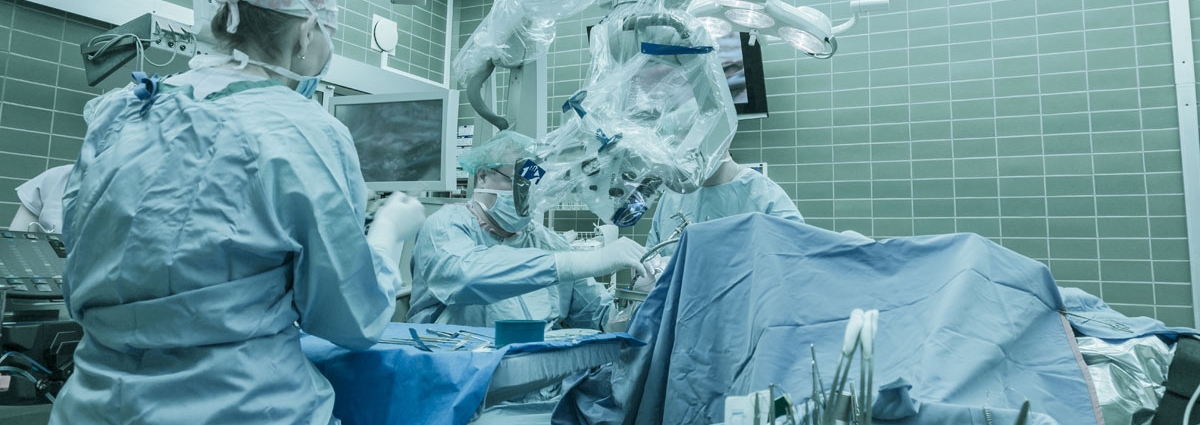
Parkinson's Disease and Movement Disorders Functional Unit
Sinapsi is a neurology and neurorehabilitation unit belonging to Centro Médico Teknon – Quirón Salud Group. The unit specialises in the diagnosis and treatment of neurological and neurodegenerative diseases from an interdisciplinary approach.
It has several specialised units: Parkinson's and Movement Disorders Unit, Healthy Ageing Unit, ADHD Unit.
We are experts in Parkinson's disease and other parkinsonisms, tremors, tics and Tourette syndrome, dystonias, choreas and dementias associated or not associated with parkinsonism. We have three neurologists, two physiotherapists, one osteopath, three speech therapists, one adult neuropsychologist and one child neuropsychologist, one psychologist and one nutritionist.
Experience in face-to-face and online visits and therapies. Maintenance and psychoeducation courses on Parkinson's disease and Tourette syndrome.
Since its inception, Sinapsis has conducted independent, competitive and innovative scientific research in the field of movement disorders. It has participated in three European projects and two programmes for TV3's Marató and has numerous publications in international journals.
Sinapsi members regularly engage with Parkinson's and Tourette Syndrome associations in Catalonia through lectures, teaching courses, and medical advice.
PROGRAMMES
- Early diagnosis of Parkinson's disease. Proper and early diagnosis allows us to determine the possibility of suffering from this disease before motor symptoms appear. This fact makes it easier for the affected person to plan their life better and make a series of changes in their habits that will favour a better progression of the disease. Drugs are being developed which, when administered early on, can slow down the progression of the disease.
We currently have tools that aid in the early diagnosis of Parkinson's disease: Neurological examination; Upsit test (highly sensitive screening test for olfactory dysfunction, which detects olfactory dysfunction that may appear years before the onset of certain neurodegenerative diseases such as Parkinson's disease); Cranial MRI to rule out structural brain damage that could cause symptomatic Parkinsonism (vascular, hydrocephalus, etc.); Dat-Scan (SPECT with dopamine transporters, highly sensitive for confirming degenerative parkinsonism); Nocturnal polysomnography: (allows detection of the multiple sleep disturbances described in Parkinson's disease, such as REM sleep disorder, restless legs syndrome or periodic leg movements). These alterations may appear several years before the onset of the classic motor symptoms of this disease; Complete blood count (to rule out secondary parkinsonism: Basic analysis that also includes copper, ceruloplasmin, thyroid function, vitamin B12, and folic acid.
- Comprehensive multidisciplinary assessment of Parkinson's disease.
The Parkinson's Unit, with its own professionals and in collaboration with different departments at the Centro Médico Teknon, coordinates the comprehensive and multidisciplinary assessment of patients with Parkinson's who have already been diagnosed and who want a holistic view of their condition.
Includes neurological consultation to assess the patient and indicate appropriate optional tests; interdisciplinary consultation:Speech therapy assessment (to evaluate different communication, swallowing and expression disorders that may arise and define the different resources and strategies to improve them); Physiotherapy examination (assessment of the patient's physical condition in order to optimise resources, maintain good physical condition, provide motor strategies and improve quality of life); Occupational therapy (assesses the patient's independence in performing activities of daily living, productivity and leisure). Provides tools for re-education and optimisation; psychological assessment and neuropsychological screening (to detect psychological and/or cognitive aspects of the patient and their carer/family member that may interfere with adaptation to the disease).
Optionally, the following may also be relevant: 1.) deepen neuropsychological exploration to enable comprehensive examination of cognitive functions: memory, attention, planning, executive functions, etc.; 2.) Perform a nocturnal polysomnography to detect the multiple sleep disturbances described in Parkinson's disease, such as REM sleep disorder, restless legs syndrome, or periodic leg movements; Consultation with urology and urodynamics for assessment of urinary dysfunction; Digestive consultation for assessment of frequent digestive problems and constipation; Genetic testing: to study known forms of genetic Parkinson's disease; Nutritionist consultation to improve constipation problems, weight regulation, and levodopa absorption
- Second opinion programme for Parkinson's disease.
- DBS (Deep brain stimulation) surgery for Parkinson's disease.
- Other movement disorders


































